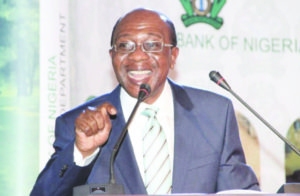Nigeria’s stable external reserve position gives the Central Bank of Nigeria the latitude to further liberalize the foreign exchange market

Buoyed by a stable external reserve position, the Central Bank of Nigeria (CBN) has moved to further liberalize the foreign exchange market (Forex) as it recently issued a circular towards opening investors’ and exporters’ window for the supply of Forex in the interbank market. The apex bank, observers say, is obviously flexing its muscle in the Forex market due to the relative peace in the Niger-Delta region which has bolstered crude oil production, and the gradual recovery in the price of crude oil in the international market which has increased accretion to the external reserve.
The CBN has in the last few months relaxed the restrictions it placed on the sale of dollars in the interbank market window of the Forex market as well as increased the pace of its intervention in the market. Also, in the last few weeks, the apex bank relaxed restrictions placed on the sale of forex in the BTA/PTA, medical and school fees category while opening an SME window for small businesses to acquire Forex for imports. With the external reserve able to finance over five months of imports and steady accretion to it, the apex bank is “now confident to intervene in the forex market”.
Since February, the CBN has expended about $5billion to shore up the value of the Naira against major currencies.The external reserve has been stable at about $30billion in the last five months.
The CBN’s intervention, according to experts, is inevitable due to the structure of the Forex market and the need to constantly monitor operators that have penchant for breaking rules to profit from trading. Several operators have been sanctioned in recent times over infractions.
Few are concerned over the intervention of the apex bank, but many including Professor Segun Ajibola, President of the Chartered Institute of Bankers of Nigeria (CIBN) are more concerned over the sustainability of the intervention, pointing to fragile situation of the oil producing region as well as the erratic nature of oil price in the international market.
However, the country seems poised to rake in more dollar inflows following renewed investors’ confidence in the Nigerian economy. The recent successful first Diaspora bond of $300million issued by the Federal Government which was 130 percent subscribed, and the recent foreign loans acquired by the government are expected to boost the external reserve position. “These inflows are usually sterilised by the CBN such that it exchanges these foreign currencies for Naira. So the reserve position seems secured for now,” says Mr Lanre Akinola, an economist.
Observers believe Nigeria’s ability to attract foreign direct investment and the current economic diversification drive of the Muhammadu Buhari administration will come to nought if it doesn’t do more to relax capital repatriation.
By Osaze Omoragbon

